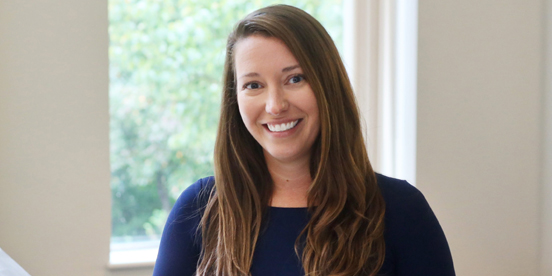HER Heritage:
Financial Planning for Women

DID YOU KNOW THAT WOMEN TEND TO OUTPERFORM MEN WHEN IT COMES TO GENERATING A RETURN ON THEIR INVESTMENTS?
It shouldn’t come as a surprise. Women are naturally:
- More risk-aware (where might things go wrong?),
- Long-term focused (what will this mean for me in five years?),
- Good at juggling lots of details (kids, pets, bills, career – and that’s just in one day), and
- Lifelong learners
LADIES, THAT’S NOT ALL YOU HAVE GOING FOR YOU…
You also save more than men, and you’ve made it a point to learn more about finances and investing. Which is good news because the stage is set for women to control 75% of worldwide discretionary spending and 2/3 of the wealth in the U.S. by 2030. It’s this simple:
As a woman, you don’t just have what it takes to make the most of your finances…It’s in your DNA! And we want to support you in using your natural abilities to build a strong and financially secure future. That’s why we created HER Heritage.
MEET THE WOMEN OF HERITAGE
At Heritage, 44% of our employees are women. And we represent all facets of the firm, from investing and wealth management, to marketing, compliance, and operations. Women make up 29% of our employee shareholders and 43% of our executive management team. We know business and finance. And we want to share what we know, from a woman’s perspective, to help you build your financial future.
WHAT CAN YOU EXPECT FROM HER HERITAGE?
- Curated resources that help you continue learning
- Frank discussions about how finances impact other key areas of life, and vice versa
- Events to make building your financial future fun, and
- Strategies to help you identify what needs to be delegated and when, so that you can actually enjoy the riches you build
WHAT WOMEN WANT TO KNOW
Your 401(k) is an amazing tool for building savings for retirement. Even if you don’t know much about investing, choosing appropriate investments can be easy with a few simple rules of thumb.
- Stocks and bonds behave differently. Expect higher long-term returns but more risk with stocks, and lower returns and less risk with bonds. Almost always, a mix of stocks and bonds is appropriate, and minimizing fees should be a high priority.
- One easy rule of thumb for figuring out how much of your savings should be allocated to stocks is to subtract your age from 120. For example, if you are 45, then 75% of your savings (120-45) is a reasonable equity allocation.
- You can also delegate the asset allocation decision (for a fee) by investing 100% of your 401(k) in a target date fund, where the fund’s manager adjusts the asset allocation over time based on age or years until retirement demographics.
Keep in mind these are general rules of thumb. If you've already accumulated meaningful retirement assets and are ready for a personal review Let’s Talk.
Starting a family is exciting and stressful. Think about these few financial To-Dos as soon as you start to plan for your family, and then you can focus 100% on the excitement of welcoming your new baby when the day finally arrives:
- Update your budget. Diapers cost more than you think! Creating a budget early will help you determine if you need to adjust your current spending to afford expanding your family. Need help with this? Here is a comprehensive budget worksheet you can use.
- Build up your emergency fund (3-6 months of expenses) if you haven’t already. Your life is about to change dramatically and you don’t want to be dealing with unnecessary stress of difficult financial decisions.
- Automate your bill payments. You are going to need all the free time you can get! The simple task of automating monthly financial tasks will save you time, stress and possibly missed payments once your house gets a bit more hectic!
Got all of this done already? Great job! Check out our Starting a Family Checklist for next level prep steps you can take before baby arrives and our resource on how to prepare financially for this exciting time in your life.
Whether expected or unexpected, the death of a spouse is a major emotional event. It’s also a significant financial event, and it can be hard to balance the need to process emotions with the financial consequences that can loom large. In our experience, the most important first steps are:
1. Coach your friend to take her time. There are probably some plans already in place, so it’s unlikely that any financial decisions need to be made in those first few days. Let her know that it’s ok to focus on emotions and take care of herself and her family first.
2. As the days unfold, work towards assembling the team of people that may be in place. It may be just a family friend or advisor, or it could be a team of accountants, attorneys and financial planners. Identify the key professionals that have been involved in the family’s finances.
3. Next start to assemble the key documents. This will include any wills, insurance policies, bank statements and budgets, at a minimum. Once the team is ready to meet, these documents will likely need to be updated and executed.
Making calls and pulling together documents can seem tedious in a time like this. Here’s a complete checklist of items to cover that will help you be a strong support network during this difficult time.
It’s never too early to start saving for college! Here are a few tips to get the process rolling:
- Determine how much of the cost you want to cover. Some parents want to fully fund their child’s college education while others want to fund only a part, making sure their child has some “skin in the game”.
- Take advantage of the tax-free growth of 529 plans for education savings. In addition to the tax benefits, they have great flexibility, allowing you to transfer funds between children or to a niece or nephew without triggering a taxable event.
- Let your friends and family know you’ve established the plan for your child. A 529 contribution from grandma and grandpa or aunts and uncles for Christmas and birthdays is a great way to increase savings.
Here is an easy college savings calculator to get you started. Each state has its own 529 plan, and there may be additional tax benefits to using the plan of your home state. Here’s a brief overview of plans by state.
Learn more about Education Planning in our Blog.
Statistically, women live longer than men. One study projects that 90% of married women will end up in a position of having to manage their own finances at some point, due to divorce or death of a spouse. You don’t have to be an expert, but we strongly advise against being 100% absent from your household finance conversations. Why?
- Finances are equally important as our health, relationships and career. Think about it: when money problems arise, it often impacts our relationships. It can cause stress that negatively impacts our health. And it could cause us to make decisions about our career that we otherwise wouldn’t. These things are all interconnected. Staying 100% out of your household finances is like giving up 100% of the decision-making related to your health or your career. You would never do it. And you shouldn’t do it with your finances either.
- If you find yourself suddenly single, the process of getting up to speed will be extremely overwhelming, and you can guarantee something will slip through the cracks.
You don’t have to be an expert in money issues to be involved in the family finances. Take small steps to get to know your household’s overall budget. Work with your spouse to create a list of all accounts, financial institutions and professional contact information. Take it one step further, and make sure you know and are comfortable with your family’s financial advisor.
PERSONALIZED WEALTH MANAGEMENT FOR BUSY, SUCCESSFUL PEOPLE
To get the ball rolling, send an email to hfsletstalk@heritagefinancial.net. Or, if you prefer, you can fill out this simple form.
Awards & Recognition
Selection criteria used to award each of these recognitions is available by clicking on the award logo.






